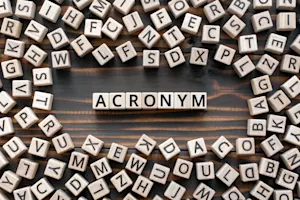What Makes This Word Tick
"Collywobbles" evokes a delightful blend of whimsy and discomfort. It's a term for that fluttery, uneasy feeling in the stomach often caused by nervousness or anxiety, like when you're waiting for the curtain to rise on opening night or about to speak in front of a crowd. Much more charming than saying "nervous stomach," isn't it?
If Collywobbles Were a Person…
Picture Collywobbles as the sort of eccentric neighbor who's always jittery, popping out with a nervous laugh and a tray of homemade biscuits when you least expect them. They're the friend who's perpetually worried about everything but adds a quirky, amusing twist to your day.
How This Word Has Changed Over Time
"Collywobbles" has held steady in capturing the essence of nervousness throughout the years. Its origins might date back to the 19th century, but what's fascinating is how it has retained its playful tone even as it describes something quite discomforting, showing how language can blend the serious with the comical.
Old Sayings and Proverbs That Use Collywobbles
While "collywobbles" hasn't headlined too many proverbs, its spirit is sprinkled throughout nuggets of wisdom like "a little worry never hurt anyone, but a lot never helped either." Here, collywobbles underline the balance between necessary caution and unnecessary fuss.
Surprising Facts About Collywobbles
It’s likely a mash-up of "colic" (referring to abdominal pains) and "wobbles" (suggesting instability), painting a vivid picture of the sensation. Interestingly, the term shares company with other colorful medical slang like "the heebie-jeebies" or "the jitters," proving our love for quirky expressions.
Out and About With This Word
You'll often find "collywobbles" popping up in humorous speeches or conversations where someone affectionately remembers their pre-presentation nerves. It's a word that finds comfort in social gatherings where everyone can chuckle over shared anxieties.
Pop Culture Moments Where Collywobbles Was Used
Though not a frequent flyer in blockbuster movies, "collywobbles" has made its way into British comedy sketches and quirky sitcoms. It's used whenever a character's exaggerated nerves are part of the punchline—a classic humorous underdog moment.
The Word in Literature
"Collywobbles" fits snugly into lighthearted novels or British literature that prides itself on intricate language play. Imagine it slipping into a Jane Austen-esque dialogue, capturing that polite anxiety between characters attending a fancy ball.
Moments in History with Collywobbles
Think of public figures braving the stage—like Winston Churchill before a broadcast. Though he might not have used the word himself, "collywobbles" perfectly describes the anticipation such events carried, marrying historical gravitas with human vulnerability.
This Word Around the World
Across the globe, cultures have their own versions of expressing nervousness. In French, you'd say "avoir le trac," while Italian gives it the poetic twist of "avere i crampi allo stomaco." Each culture adds its own lyrical spin to the universal flutter.
Where Does It Come From?
The playful term "collywobbles" possibly stems from the Middle English word "colic," derived from the Greek "kolikos," meaning "pertaining to the colon." Add a dash of whimsy with "wobbles," and you've got a linguistic cocktail that tickles the tongue.
How People Misuse This Word
Sometimes, people might use "collywobbles" to describe general stomach issues unrelated to nerves—like after daring to eat that dubious shellfish. But remember, it's all about that anxious gut feeling!
Words It’s Often Confused With
Colic: Often associated purely with physical stomach pain rather than nervousness.
Jitters: Similar in context but usually suggests more external signs of restlessness, like shaking.
Butterflies: A close cousin, but "butterflies" are generally lighter, less intense than the full-on collywobbles.
Additional Synonyms and Antonyms
Synonyms for collywobbles include the "jitters" and "nerves," while antonyms would be "calmness" and "composure," painting a serene picture quite contrary to its scribbly sensation.
Want to Try It Out in a Sentence?
"Just before taking the stage for her first solo performance, Sarah felt the familiar collywobbles but took a deep breath and stepped into the spotlight with confidence."
















